The ongoing saga of the Bitcoin landfill appeal has captured the attention of the cryptocurrency community and legal observers alike. James Howells, the man at the center of this complex cryptocurrency legal battle, is on a mission to recover a hard drive containing the precious keys to 8,000 Bitcoin, now buried in a UK landfill site. After multiple rejections from the UK courts, Howells’ last hope lies with the European Convention on Human Rights, where he aims to argue that his property rights have been infringed. His fight raises significant questions about the intersection of digital assets and conventional legal frameworks, paving the way for discussions surrounding the rights of cryptocurrency holders. As the clock ticks down toward the impending closure of the Docksway landfill, the urgency of this unprecedented case cannot be overstated.
The plight of a UK man fervently pursuing his lost Bitcoin currency epitomizes the challenges faced by early adopters of digital currency. This case, often framed as the Howells Bitcoin case, highlights not only the struggles of reclaiming a digital fortune lost to waste but also the ripple effects on property rights within the burgeoning world of cryptocurrency. With increasing discussions surrounding the legal implications of cryptocurrency ownership, Howells’ appeal resonates deeply in the legal landscape, as he seeks justice through international channels. As he navigates through the complexities of appealing to higher courts, the spotlight remains on how such legal interpretations will shape the future of digital asset management and ownership. It raises fundamental questions about what protections exist for cryptocurrency holders under current laws, emphasizing the urgency and significance of this unique legal challenge.
The Legal Battle for Bitcoin Landfill Appeal
The ongoing saga of a UK man attempting to recover his lost Bitcoin from a landfill site underscores the complex intersection of cryptocurrency and legal rights. After being denied the necessary permits to search for a hard drive buried in a landfill, this individual’s story has turned into a significant legal battle. He believes that his rights to property and a fair trial have been violated, prompting him to escalate his appeal to the European Convention on Human Rights (ECHR). This move highlights the potential for cryptocurrency legal battles to not only challenge local laws but also provoke international scrutiny.
This appeal represents more than just a personal quest; it encapsulates broader themes surrounding cryptocurrency ownership and legal recognition. The UK Courts have consistently ruled against Howells, suggesting that his case lacks a “real prospect of success.” However, he remains undeterred, asserting that traditional legal systems have failed him, and he views the ECHR as his final legal option. Such actions could lead to significant discussions about property rights in the context of cryptocurrency, especially as more individuals navigate the cryptocurrency landscape.
The Impact of the Howells Bitcoin Case on Cryptocurrency Law
The legal implications of the Howells Bitcoin case extend far beyond one individual’s quest to recover specific assets. This case brings to light critical questions about how cryptocurrencies are treated under current legal frameworks, especially in the United Kingdom. As Howells aims to leverage his situation into a broader challenge, it may prompt courts to reevaluate existing laws that govern cryptocurrency ownership. The outcome could set a precedent for how future cases involving lost or inaccessible cryptocurrency assets are addressed by the judiciary.
Moreover, this case has significant implications for individuals who self-custody their cryptocurrency. The plight of Howells serves as a cautionary tale highlighting the risks of inadequate security measures around digital assets. If Howells wins at the ECHR, there may be a ripple effect on legal protections for cryptocurrency holders, potentially disclosing the relationship between property rights and digital assets. In such a rapidly evolving space, legal systems worldwide may be compelled to adapt and conceptualize cryptocurrency within existing constitutional frameworks.
The Role of the European Convention on Human Rights
The European Convention on Human Rights (ECHR) offers a unique avenue for individuals like Howells to challenge decisions in their domestic courts. By appealing to the ECHR, Howells seeks to invoke human rights principles that protect individuals from state actions that infringe on property rights. His argument hinges on Articles 1 and 6 of the ECHR, which safeguard against arbitrary deprivation of property and promise the right to a fair trial. This approach represents a novel twist in the ongoing discourse around cryptocurrency law, showcasing how human rights frameworks can intersect with emerging technological realities.
While the ECHR cannot overturn UK court decisions directly, a ruling in favor of Howells could urge UK courts to reassess their interpretations of existing laws in light of human rights standards. Such outcomes could expand protections for individuals against the systemic barriers that limit access to their digital assets. As the landscape of cryptocurrency continues to develop, this case could serve as a pivotal moment that reshapes our understanding of rights as they pertain to digital currencies, potentially sparking a broader examination of human rights in the context of technology.
Cryptocurrency and Property Rights: A Growing Concern
As more people engage with cryptocurrencies, the question of how these digital assets are classified under property laws becomes increasingly pertinent. In Howells’ case, the UK courts’ refusal to allow him to search for his hard drive brings to the forefront the complexities surrounding ownership of digital currencies. If courts do not recognize digital assets as legitimate property, individuals may find themselves without legal recourse when attempting to recover lost cryptocurrencies, further complicating the regulatory landscape.
This growing concern calls for a comprehensive reevaluation of existing property laws and their adaptability to the nuances of cryptocurrency. As more legal battles arise, like Howells’ ongoing struggle, the discourse around property rights in the context of cryptocurrency will likely gain increased attention. Advocates for cryptocurrency legality often emphasize the need for regulatory frameworks that can support more robust protections for digital assets, ensuring that owners like Howells have clear rights to self-custodied funds.
The Future of Cryptocurrency Regulation in the UK
The Howells Bitcoin case has the potential to act as a catalyst for legislative change in the UK. With the current legal framework proving inadequate for cryptocurrency owners, policymakers may be motivated to reassess how digital assets fit within existing regulations. As the cryptocurrency ecosystem continues to grow and evolve, there’s an urgent need for clear guidelines that address ownership, rights, and responsibilities pertaining to these assets.
Given Howells’ predicament, the UK government’s response could shape the future landscape of cryptocurrency regulation. Striking a balance between innovation and consumer protection is essential, as the industry faces impasse situations like Howells’ search for his lost Bitcoin. If the courts do not recognize the legal significance of cryptocurrencies, the risk of undermining public confidence in this innovative financial technology becomes a reality, emphasizing the necessity for systematic reforms in how cryptocurrencies are governed.
Public Perception and the Cryptocurrency Community
The case of Howells has captured attention not only in legal circles but also within the cryptocurrency community. Many enthusiasts and investors resonate with Howells’ frustration; the nuances of cryptocurrency ownership, particularly surrounding lost assets, are concerns shared widely in this burgeoning sector. The immense value tied to lost Bitcoins underlines an inherent risk of digital currencies, prompting discussions on best practices for safeguarding assets and avoiding situations like Howells.’s.
Public perception will play a critical role in shaping future dialogues about cryptocurrency legislation as more individuals become involved in the digital currency landscape. Howells’ case serves as a rallying point to emphasize the need for legal recognition of cryptocurrencies and the consideration of individual rights in emerging technologies. As cryptocurrencies integrate more deeply into society, a cohesive narrative will influence how legislators perceive and act upon these digital innovations.
Navigating the Challenges of Self-Custodied Cryptocurrency
Howells’ struggle points to the essential challenges faced by individuals who choose to self-custody their cryptocurrency. The need for personal accountability in managing digital assets has never been more pronounced. As more individuals seek autonomy over their currencies without relying on exchanges, they must also be acutely aware of potential pitfalls, including security vulnerabilities and accessibility issues.
Education and awareness about managing self-custodied funds are paramount. Proper safeguarding measures can prevent future situations like Howells’, emphasizing the importance of educating new Bitcoin holders about considering secure storage solutions. As the cryptocurrency market evolves, the balance between freedom and responsibility becomes increasingly crucial for those handling digital currencies.
The Economic Implications of the Howells Bitcoin Case
The economic ramifications of the Howells case transcend personal financial loss, reaching into broader economic discussions about cryptocurrency’s valuation and market stability. With 8,000 Bitcoin at stake, valued at approximately $660 million at current prices, this case sheds light on the significant economic weight that digital assets can carry. If successful, it may set a precedent that impacts not only individuals but also market confidence in the value of cryptocurrencies.
Understanding Howells’ struggle underscores the volatility and unpredictability that characterize the cryptocurrency market. The potential for massive losses due to system inadequacies raises alarms about the need for more robust regulations to protect investors. As the community watches this case unfold, the implications for market dynamics and investor trust cannot be overstated, potentially influencing how cryptocurrencies are perceived as viable assets in the global economy.
The Path Forward in Cryptocurrency Legal Frameworks
Howells’ journey through the courts and his impending appeal to the ECHR may evoke significant changes to cryptocurrency-related legal frameworks in the UK. While traditional legal systems grapple with incorporating cryptocurrencies into established laws, this case could highlight the urgency for a sizable review of existing regulations. As custodial issues emerge and cases like Howells materialize, lawmakers will need to respond effectively to protect individuals’ rights and investment security.
As we advance, the interplay between emerging technologies and established legal systems will likely trigger necessary reforms in the treatment of digital assets. Howells’ situation could ultimately influence how cryptocurrencies will be legislated, shedding light on the need for adaptable and forward-thinking regulations. Reimagining property rights for digital currencies can enhance confidence in the cryptocurrency space and safeguard individual investors.
Frequently Asked Questions
What is the Bitcoin landfill appeal related to Howells’ case?
The Bitcoin landfill appeal refers to the legal attempts by a UK man, Howells, to recover a hard drive from a landfill that contains the private keys to 8,000 Bitcoin. After losing his appeal in the UK Court of Appeals, Howells now intends to file a case with the European Convention on Human Rights, claiming violations of his property rights and right to a fair trial.
Why was Howells’ appeal regarding the UK landfill Bitcoin dismissed?
Howells’ appeal regarding the UK landfill Bitcoin was dismissed by the Court of Appeals because Judge Christopher Nugee found there was no ‘real prospect of success’ for the case. This ruling followed an earlier dismissal by the High Court, indicating that the court perceived no compelling reason to permit the search of the landfill for the hard drive.
How does the European Convention on Human Rights relate to the Bitcoin landfill appeal?
The European Convention on Human Rights is related to the Bitcoin landfill appeal as Howells plans to argue that the UK courts violated his rights under Article 1 of Protocol 1 and Article 6, concerning the right to property and the right to a fair trial. He believes that a favorable ruling from the ECHR could lead UK courts to reassess their legal interpretations.
What is Howells’ last legal option in the Bitcoin legal battle?
Howells’ last legal option in the Bitcoin legal battle involves filing a claim with the European Convention on Human Rights. After being denied permission to search the landfill by UK authorities, he feels this international legal avenue is his final chance to recover the hard drive containing his Bitcoin.
What effect would a ruling in Howells’ favor have on cryptocurrency legal battles in the UK?
Should the European Convention on Human Rights rule in Howells’ favor regarding the Bitcoin landfill appeal, it could compel UK courts to re-evaluate their legal decisions regarding property rights in cryptocurrency cases. This would set a potential precedent for future cryptocurrency legal battles in the UK.
How much is Howells’ Bitcoin worth and why is it significant?
Howells’ Bitcoin, comprising 8,000 Bitcoins, is currently valued at approximately $660 million. This situation highlights the significance of properly securing self-custodied cryptocurrency, as losing access to private keys can result in massive financial losses, especially given the volatile nature and rising valuations of cryptocurrencies like Bitcoin.
What timeline is Howells working against in his appeal for the Bitcoin landfill case?
Howells is working against a timeline as the Docksway landfill, where he believes his hard drive is buried, is scheduled to shut down sometime during the UK’s 2025-2026 financial year. This urgency adds pressure to his legal efforts to locate the hard drive before the landfill is permanently closed.
What led to Howells losing access to his Bitcoin hard drive?
Howells lost access to his Bitcoin hard drive in 2013 when it was disposed of in a landfill by a former partner. The loss of the hard drive, which contains the private keys to his Bitcoin holdings, has initiated a long and complex legal battle for its recovery.
What implications does Howells’ case have for Bitcoin custody practices?
Howells’ case highlights the critical importance of secure Bitcoin custody practices. The loss of access to substantial cryptocurrency holdings due to lost private keys stresses the need for proper management and backup strategies in self-custodied cryptocurrency investments.
How can the public support Howells in his Bitcoin landfill appeal?
Public support for Howells in his Bitcoin landfill appeal can come through spreading awareness of his case, engaging in discussions about property rights in cryptocurrency, and potentially contributing to fundraising efforts aimed at financing his legal battles.
| Key Points |
|---|
| A UK man, James Howells, lost an appeal to search a landfill for a hard drive with keys to 8,000 Bitcoin. |
| Howells plans to file an international human rights case with the European Convention on Human Rights (ECHR). |
| UK Courts dismissed his previous applications stating there was no realistic prospect of success. |
| Howells claims the UK courts violated his rights to property and a fair trial under European law. |
| The Bitcoin he seeks is worth roughly $660 million, emphasizing the need for secure cryptocurrency storage. |
| The Docksway landfill is set to close in the 2025-2026 financial year, increasing urgency for recovery efforts. |
Summary
The recent developments surrounding the Bitcoin landfill appeal are both intriguing and significant. James Howells, the man attempting to recover his hard drive lost in a UK landfill containing keys to 8,000 Bitcoin, has stated that he views his ongoing legal battle as one concerning fundamental human rights. Despite previous rejections from UK courts, Howells is now prepared to escalate his case to the European Convention on Human Rights, asserting that his rights have been infringed upon. This case not only underscores the critical importance of secure cryptocurrency storage but also highlights ongoing tensions within the legal framework surrounding digital asset ownership. As Howells pushes forward with his appeal, the cryptocurrency community watches closely, recognizing the implications of the outcome.
The Bitcoin landfill appeal has gained significant attention as a man named Howells embarks on a desperate quest to recover a hard drive containing the private keys to a staggering 8,000 Bitcoin, currently valued at approximately $660 million. Despite his hopes, the UK Court of Appeals has turned down his request for permission to search a landfill site where the hard drive was discarded in 2013. This legal battle has drawn parallels to broader issues, including the implications of the European Convention on Human Rights, as Howells seeks to challenge the decisions of the High Court and the Royal Court of Appeal. As he prepares to file an international human rights case, the controversy around the handling of cryptocurrency assets continues to unfold. Howells’ plight serves as a critical reminder of the need for proper security measures when managing cryptocurrency holdings and the potential consequences of misplacement.
In the unfolding narrative of a relentless legal struggle, the appeal concerning the Bitcoin landfill has emerged as a poignant symbol of the challenges faced by cryptocurrency holders. A UK citizen, Howells, continues to fight for access to his lost Bitcoin hard drive that was mistakenly tossed into a landfill nearly a decade ago. This situation not only highlights the complexities involved in reclaiming one’s digital assets but also brings to the forefront issues relating to property rights under the jurisdiction of the European Convention on Human Rights. As Howells navigates through the intricacies of a cryptocurrency legal battle, his story resonates with others in the crypto community who recognize the importance of safeguarding their investments. With the Docksway landfill’s impending closure, the urgency of this matter intensifies, prompting discussions about the future of digital currency ownership.
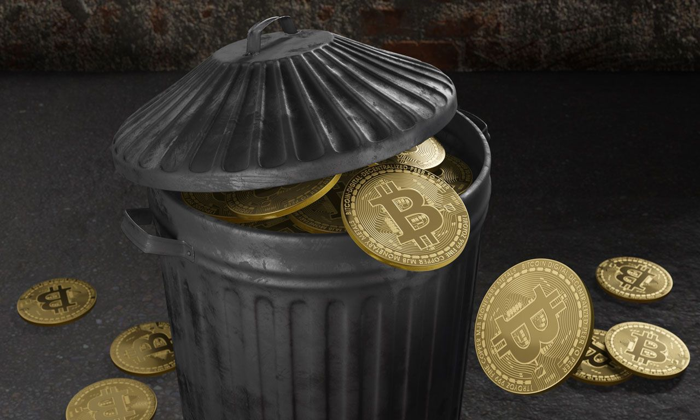



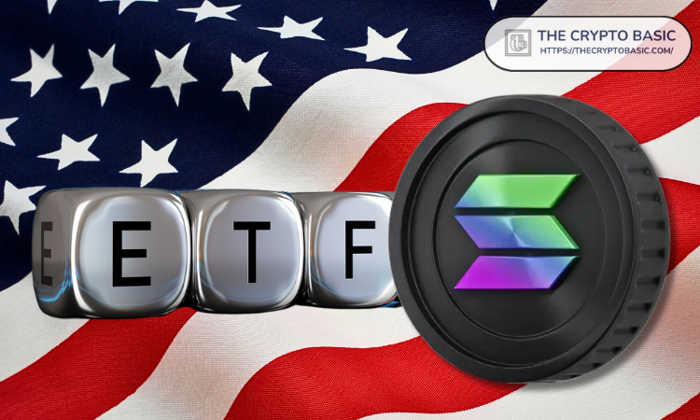
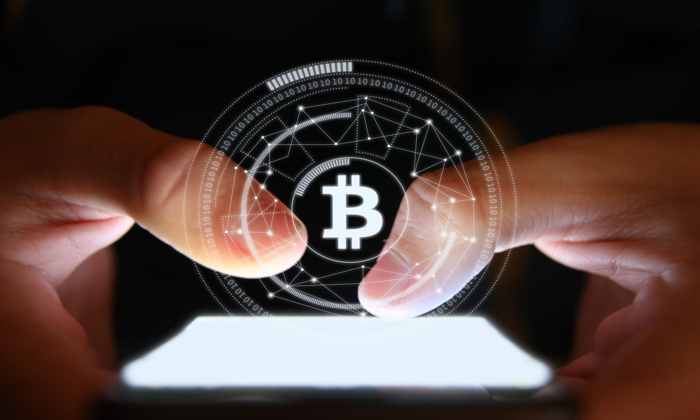
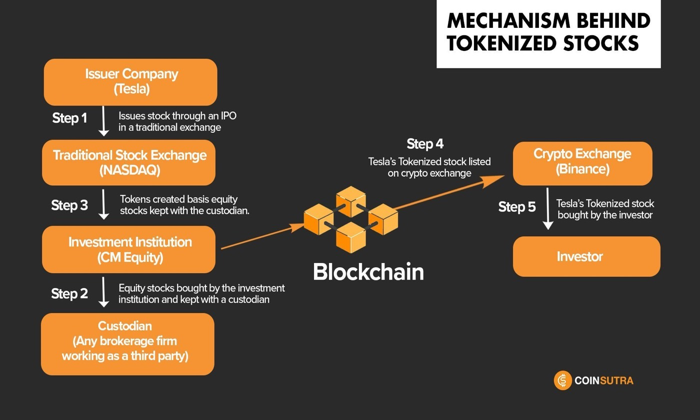
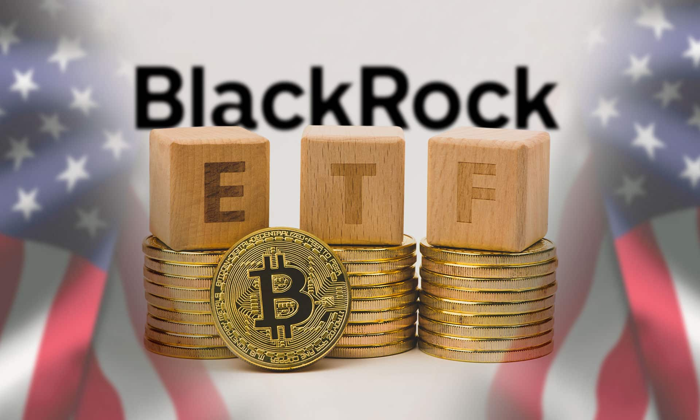

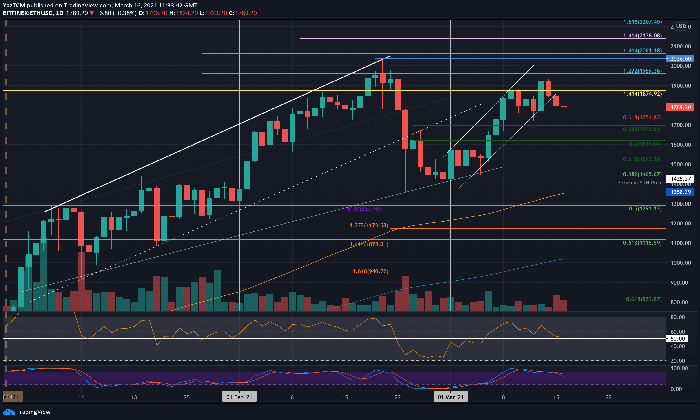

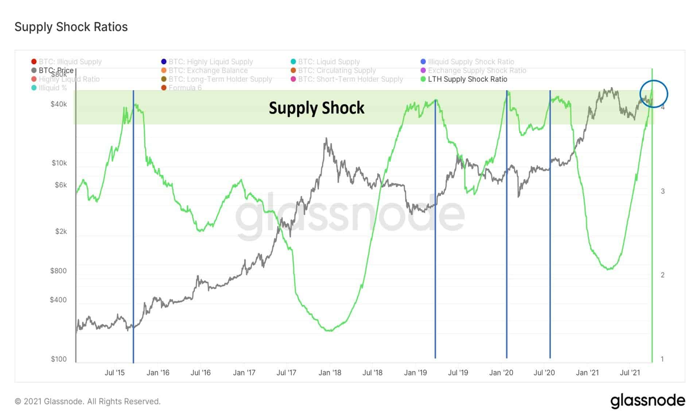



Leave a Reply